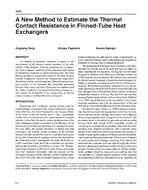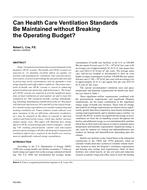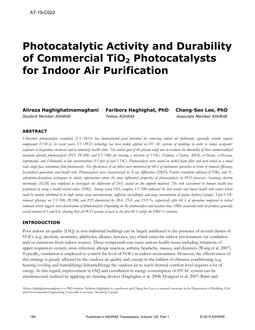This paper discusses the use of a cool tube as an air-to-earth heat exchanger that is used to reduce the HVAC requirements of a building. The cooling effect of a cool tube was experimentally and analytically investigated. (1) The measured air and surface temperatures of a cool tube in an existing building were compared with calculated values from a simplified analytical model. (2) Both the time forward finite difference method and frequency response method were compared with respect to the computational task for time, memory, etc. (3) The shape of the tube’s cross section is largely related to the cooling effect of the cool tube. An approximate two-dimensional model of the tube, which considers three dimensions, was developed. (4) The number of parameters in the fundamental equations describing the characteristics of the cool tube system was reduced by introducing nondimensional expressions and several appropriate approximations. Numerical results of these simplified equations were presented in graphical form for easier evaluation of the cooling effect.
The evaluation of a cool tube, taking into account both sensible and latent heat, will be investigated in Part 2 of this paper.
Units: SI
Citation: Symposium, ASHRAE Transactions, 1998, Vol. 104, Part 2, Toronto, ON
Product Details
- Published:
- 1998
- Number of Pages:
- 9
- File Size:
- 1 file , 320 KB
- Product Code(s):
- D-7743


